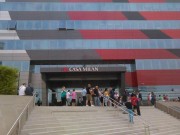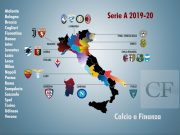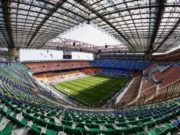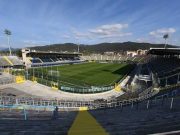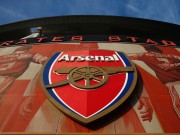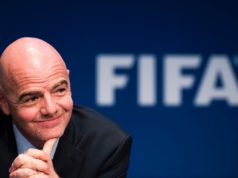The F.C. Internazionale Milano S.p.A. Shareholders’ Meeting, which took place via video conference in accordance with the current health regulations, has approved the club’s balance sheet for the 2019/20 financial year, which was significantly affected by the COVID-19 pandemic.
The financial year saw economic and financial streamlining measures implemented, with a particular focus on monitoring costs and carefully managing working capital, investment and liquidity, which had already been strengthened as a result of the financing operation concluded in December 2017.
In the first half of the year, the club generated new revenues and profitability streams, in accordance with the club’s business and development plan. However, as of March 2020, the club’s performance was affected by the global COVID19 pandemic and the subsequent measures adopted by Lega Serie A and UEFA in order to allow for the resumption and completion of competitions, with the aim of determining the various competition winners by 31 August 2020.
These measures meant that matches were played behind closed doors, resulting in the elimination of match-day revenues as well as the need to refund any affected match-day tickets and a proportion of season tickets. These factors were only partly mitigated by insurance coverage.
The financial year saw a drop in revenues of around €45 million to €372.4 million, EBITDA of €14.5 million and losses of €102.4 million.
“In a situation of significant economic downturn, we have been able to consolidate Inter’s growth plans, which rest on the creation of a global brand and are based around an innovative business vision whose main target audience is younger generations,” said President Steven Zhang. “Our commitment for the future is – as always – to guarantee the sustainability of the club and ensure improved results on the pitch.”
“Amid a context of extreme uncertainty, Inter began a new journey. We finished second in the league, just one point off the top, and we competed in a European final for the first time in ten years. We also brought through talented young players which represent the future of the club from both a sporting and assets perspective” said CEO Sport Giuseppe Marotta. “We laid strong foundations which will – in time – allow us to be successful again. Our objective remains to constantly improve results, season after season.”
“Our revenue for the 2019/20 financial year – net of the deferral of revenues to the current season – is stable, showing that we are continuing to move in the right direction,” said CEO Corporate Alessandro Antonello. “Last season also saw further growth in our enterprise value, brand value, digital performance and global fan numbers.”
The extension of sporting activities until 31 August 2020, past the end of the balance sheet (30 June 2020), resulted in the deferral of revenues from TV rights and sponsorship to the 2020/21 financial year, for a total of around €51 million. Net of these deferred revenues, EBITDA stands at €46 million (compared with €105.2 million in the previous year) as a result of the investment made by the club to increase the competitiveness of the team on the pitch, coupled with the non-renewal of a number of sponsorship agreements. Losses would drop to €70.7 million, while club revenues would stand at €423.7 million, a 2% increase on the €417.1 million recorded the previous season, confirming the consolidation of a figure that has more than doubled since 2016, the year Suning arrived at the club.
The Inter brand has again been confirmed as one of the most valuable football brands in the world (€466 million, 14th position), having risen by 15 positions since 2016 thanks to growth of over 235% in that five-year period. Furthermore, according to Sportspro, Inter is ranked 20th in its rundown of the most marketable sports brands in the world and comes in seventh position in the specific ranking for football clubs.
The brand’s content production strategy – which aims to deliver innovative, geo-localised content to the new generations – has led to a significant increase in the number of followersacross the club’s various digital channels, with these rising by 72% from the 2018/19 season, to 38.8 million. According to KPMG’s Football Clubs Valuation Report 2020, these figures mean that Inter are the top club in Europe in terms of the percentage increase in its follower numbers. The overall number of Inter fans around the world has also increased to 428 million, up by 11% compared with 2019, meaning Inter has the ninth-biggest fanbase in the world.
For the fifth season in a row, the support afforded to the team by the Inter fans was unparalleled in Italy. Almost 800,000 spectators attended our home matches, just 12 of which were played with fans in the stadium. This equates to an average of 65,800 fans per game, the highest average attendance in Serie A for the 2019/20 season, up 7% on the previous campaign. The two biggest matches of the season, against Juventus and Barcelona, generated all-time gate receipt records for Serie A (€6.6 million) and for a match played in Italy (€7.9 million) respectively.
The club is continuing to invest in infrastructure. Over the course of the 2019/20 season, the new Club House at the Suning Training Centre was completed, while work began at the Suning Youth Centre, which is home to Inter College – a school for the young players based there – and a residence. The most significant infrastructure project currently planned is the new San Siro district, a €1.2 billion investment to build a modern, innovative and sustainable stadium and revitalise the surrounding area to create a thriving hub open all year round..



